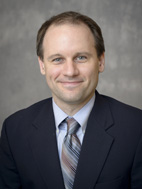EEE Research Spotlight

Dr. Andrew Whelton
Dr. Andrew Whelton, an Assistant Professor of Environmental and Ecological Engineering as well as Civil Engineering, is passionate about conducting research to investigate and solve problems that affect our natural and built environments.
He received his B.S. in civil engineering, M.S. in environmental engineering, and Ph.D. in civil engineering from Virginia Tech. Dr. Whelton has worked for the U.S. Army, consulting engineering firms, the National Institute for Standards and Technology, and the University of South Alabama.
Most recently, he has been working to improve the safety of building drinking water and water pipe repair technologies. An ongoing national plumbing safety project he is leading is a collaboration with Michigan State University, San Jose State University, and Tulane University as well as the health, water, plumbing, and utility industries.
A second nationally significant effort pertains to water pipe repairs. This work has improved the understanding of occupational hazards posed to construction workers, persons nearby, and the environment. Results and recommendations have prompted federal and state public and worker safety agencies, environmental, and transportation agencies, as well as Cured-in-Place Pipe (CIPP) companies, to begin to understand the materials emitted into air and water.

Dr. John W. Sutherland
As a young faculty member in the early 90s, Professor John W. Sutherland pioneered the field of sustainable manufacturing. He initiated efforts to eliminate the causes of environmental issues in manufacturing. Over the years, through support from industry and the government, he has applied the concepts of sustainability to manufacturing processes and systems. He has investigated such issues as dry or near-dry machining, airborne particulate formation in manufacturing operations, environmental footprints for production processes, logistics for biofuel production, and strategies for closing material loops in product life cycles, including recycling and remanufacturing.
At present, Sutherland and his students and colleagues are investigating smart/sustainable manufacturing for greater energy efficiency/effectiveness as part of the Wabash Heartland Innovation Network (WHIN). New methods for manufacturing planning and manufacturing equipment design are also being developed to reduce environmental impact. And, strategies are being pursued to help advance the circular economy paradigm. Much of this work is being pursued as part of the Indiana Next Generation Manufacturing Competitiveness Center (IN-MaC).
